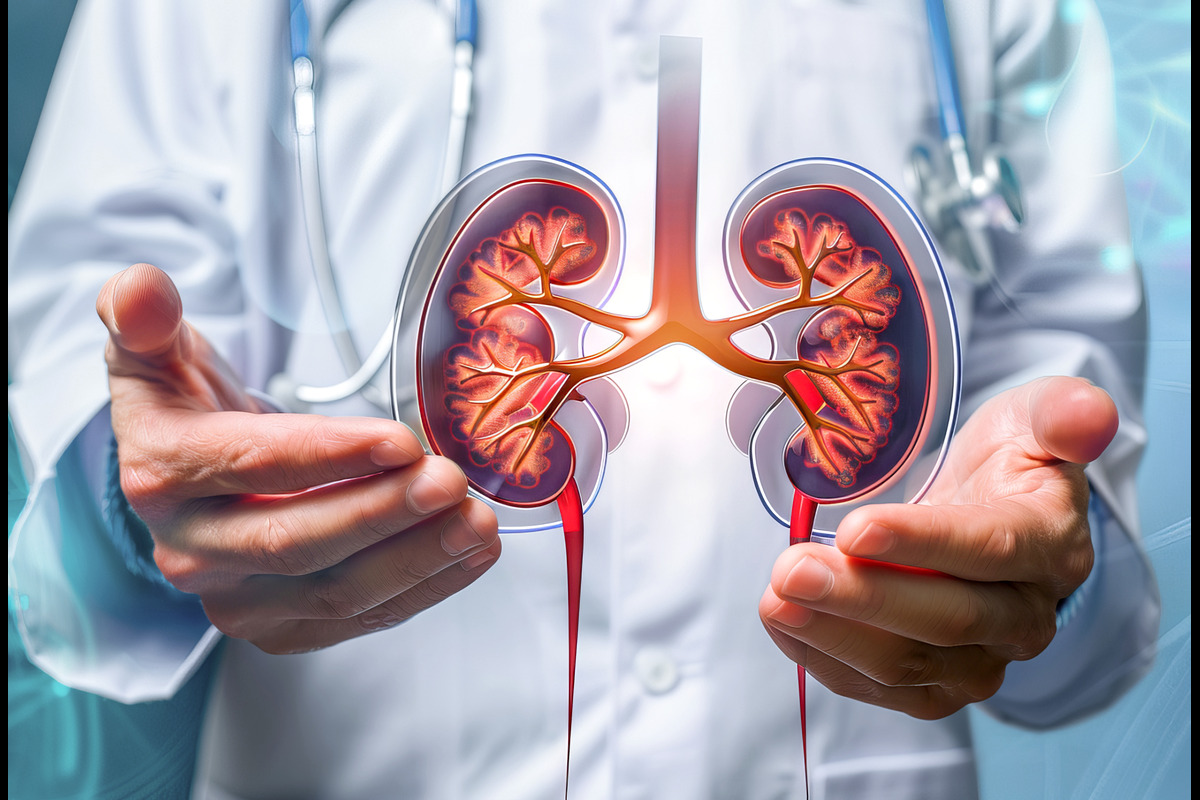 August 15, 2024
August 15, 2024
Understanding Kidney Disease: A Comprehensive Guide to Symptoms, Diagnosis, and Treatment Options
Kidney disease is a critical health concern that often goes unnoticed until it reaches an advanced stage. The kidneys are essential organs responsible for filtering waste and excess fluids from the blood, regulating various bodily functions. When these organs are compromised, the effects can be severe. In this article, we'll explore the subtle signs of kidney disease, the diagnostic procedures used to detect it, and the treatment options available, especially for those seeking care at a Kidney Hospital in Faridabad.
Early Signs: Recognizing Symptoms of Kidney Disease
Kidney disease often progresses quietly, with symptoms that can be easy to overlook or attribute to other conditions. However, being aware of these early signs can make a significant difference in managing the disease:
- Chronic Fatigue: One of the first signs that the kidneys might not be functioning properly is a persistent feeling of tiredness. This occurs because the kidneys are unable to efficiently remove toxins from the blood, leading to a general sense of fatigue and mental fogginess.
- Noticeable Swelling: As the kidneys' filtering capacity diminishes, fluid retention becomes a problem, leading to noticeable swelling in the lower extremities such as the feet, ankles, and legs.
- Changes in Urination: Alterations in urination patterns, such as the need to urinate more frequently, changes in the color of urine, or the presence of foam, could indicate the kidneys are under stress.
- Breathlessness: Fluid buildup in the lungs, a potential result of kidney dysfunction, can cause shortness of breath. This symptom is often confused with respiratory issues, but it can be a sign of worsening kidney function.
- Nausea and Appetite Loss: As waste accumulates in the blood, it can cause digestive disturbances such as nausea, vomiting, and a loss of appetite, contributing to weight loss and malnutrition.
- Blood Pressure Issues: High BP serves as both a contributing factor and an indicator of kidney disease. When the kidneys face challenges in managing fluid and sodium levels, blood pressure may increase, further aggravating kidney impairment.
Diagnostic Approaches: How Kidney Disease is Identified
Early detection of kidney disease is crucial for slowing its progression and managing symptoms effectively. Several diagnostic tests are done to identify kidney diseases:
- Blood Tests: Tests measuring levels of creatinine and urea nitrogen in the blood can provide an early indication of kidney problems. These substances are normally filtered by the kidneys, so elevated levels suggest impaired function.
- Urine Tests: Routine urine analysis can reveal abnormalities such as proteinuria (excess protein in the urine) or hematuria (blood in the urine), which are common indicators of kidney damage.
- Imaging Techniques: Non-invasive imaging, including ultrasounds or CT scans, allows doctors to visualize the kidneys and identify structural issues such as blockages, tumors, or cysts that could be affecting kidney function.
- Kidney Biopsy: In some cases, a biopsy may be necessary to obtain a definitive diagnosis. This procedure involves extracting a small sample of kidney tissue for microscopic examination, which can provide insights into the type and extent of kidney disease.
Treatment Options: Managing Kidney Disease Effectively
The approach to treating kidney disease depends on the stage and underlying cause. Consulting with a Nephrologist in Faridabad can help tailor a treatment plan suited to the patient's specific condition:
- Medications: Medication is often prescribed to manage symptoms such as high blood pressure, control blood sugar in diabetic patients, and treat anemia. These medications help slow the progression of kidney disease and manage its symptoms.
- Dietary Adjustments: Managing diet is a key aspect of treating kidney disease. Patients are often advised to reduce salt and protein intake, manage potassium levels, and stay hydrated while avoiding excessive fluid intake.
- Dialysis: In advanced stages, when kidney function is significantly reduced, dialysis may become necessary. This treatment involves using a machine to filter the blood, performing the function that the kidneys can no longer do.
- Kidney Transplantation: For patients with end-stage renal disease, a kidney transplant may be considered. This involves surgically replacing the damaged kidney with a healthy one from a donor, which can offer a long-term solution and significantly improve the patient's quality of life.
Conclusion: Prioritizing Kidney Health
Kidney disease requires prompt attention and management to prevent it from progressing to a more severe stage. If you or someone you know is at risk, it's important to seek care at a specialized Kidney Hospital. SSB Healthcare offers comprehensive kidney care services, including advanced diagnostics and personalized treatment plans. With a team of skilled nephrologists and state-of-the-art facilities, SSB Healthcare is dedicated to providing the highest quality care to help manage kidney disease and improve your quality of life.
 August 15, 2024
August 15, 2024